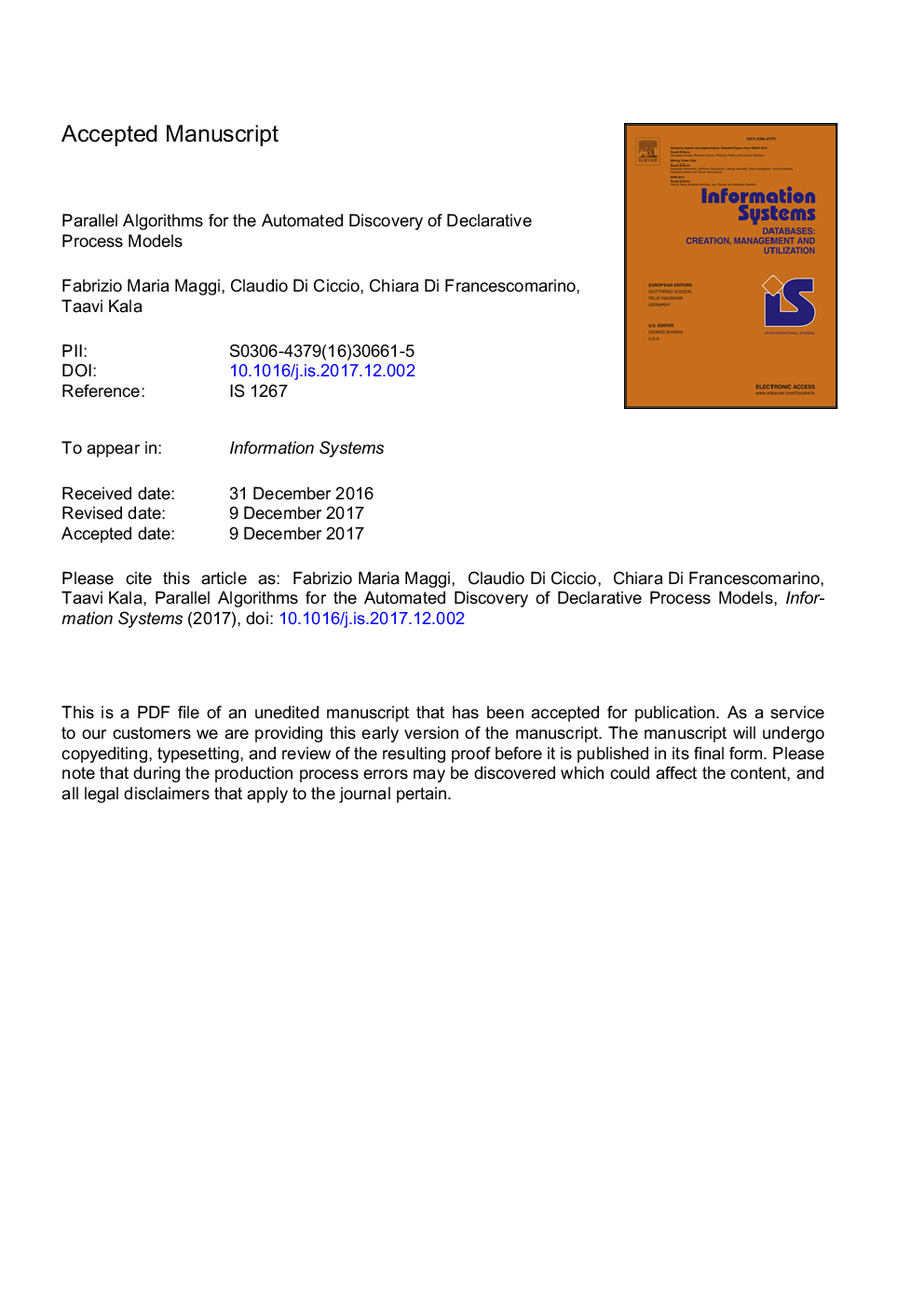ترجمه فارسی عنوان مقاله
الگوریتم های موازی برای کشف خودکار مدل های فرایندهای اعلام شده
عنوان انگلیسی
Parallel algorithms for the automated discovery of declarative process models
| کد مقاله | سال انتشار | تعداد صفحات مقاله انگلیسی |
|---|---|---|
| 123489 | 2018 | 47 صفحه PDF |
منبع

Publisher : Elsevier - Science Direct (الزویر - ساینس دایرکت)
Journal : Information Systems, Volume 74, Part 2, May 2018, Pages 136-152

